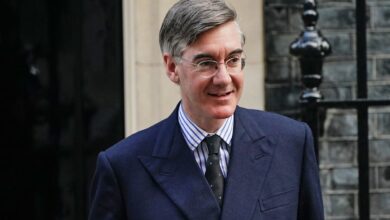Rishi Sunak offer to cut VAT on energy ‘threatens climate change targets’

Rishi Sunak’s plan to cut VAT from energy price bills would be “a move in exactly the wrong direction” for climate change, an influentical economic thinktank has warned.
The Institute for Fiscal Studies said the removal of the 5 per cent levy, proposed by the Tory leadership candidate today, would be “bearable” if limited to a single year, as Mr Sunak proposes.
But the IFS said that, once removed, it would be “politically difficult” for the new prime minister to restore in 12 months’ time, when prices are likely to remain high.
Over the long term, it would make it harder for the UK to hit its Net Zero target for carbon emissions in 2050, and would make any reductions “more costly overall to households than it need be”.
Mr Sunak’s promise of a one-year VAT holiday from October if the annual price cap rises above £3,000 represented a screeching U-turn after months in which the former chancellor resisted Labour demands for the move.
But IFS senior economist Stuart Adam said that the richest households would gain most in cash terms from the change, while others would be encouraged to use more energy rather than cut back.
Households across Britain are facing tough decisions on heating their homes this winter, with regulator Ofgem predicted to increase the price cap by more than £1,200 to £3,250 for a typical user from October, following a similar increase of £700 in April.
Contrary to earlier warnings from the former chancellor, the IFS said there was no danger that energy companies would fail to pass on any VAT cut to customers, who could expect to save an average £154 at a cost of £4.3bn to the Treasury.
But the thinktank described the 5 per cent saving as “small beer” compared to the massive 154 per cent increase expected to be confirmed in October, compared to the £1,277 cap the year before.
And, unlike Mr Sunak’s earlier package of cost-of-living help which was targeted at the most vulnerable, the VAT cut will benefit the richest – who use most energy -more than the less well-off in cash terms.
The IFS said the move would “slightly” add to inflationary pressures, at a time when Mr Sunak has opposed tax cuts offered by his leadership rival Liz Truss because of the danger of fuelling price rises.
But Mr Adam said the real risk of the one-year VAT holiday is that the new prime minister would be under intense political pressure to extend it in October 2023, facing accusations of imposing a tax on heating bills if it ends as planned.
“If it were genuinely temporary, the fiscal and environmental costs of the policy would be bearable,” he said.
“The biggest risk with the policy is that it would prove politically difficult to restore VAT on energy bills at the end of the 12 months.
“As a permanent policy, removing VAT on energy bills would be a move in exactly the wrong direction: distorting households’ choices towards more energy use, making it harder to meet the UK’s ‘net zero’ targets and meaning that any reduction in emissions happened in a way that was more costly overall to households than it need be.”





